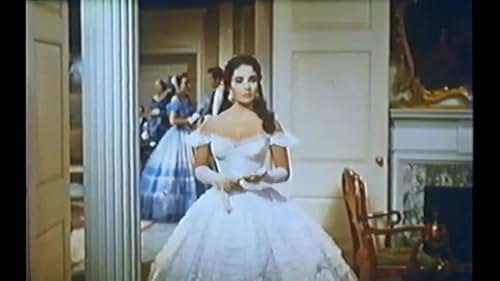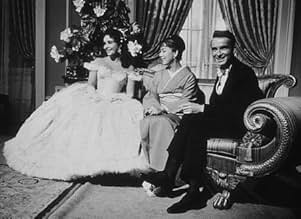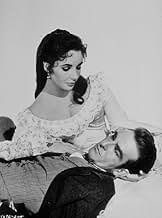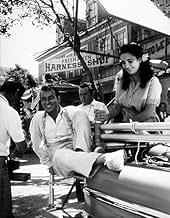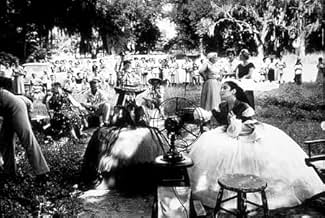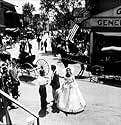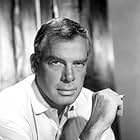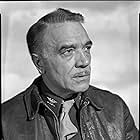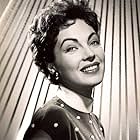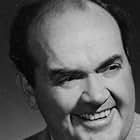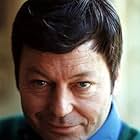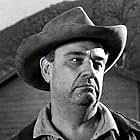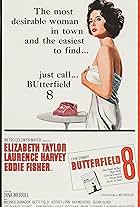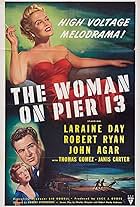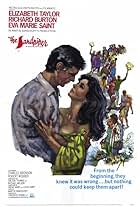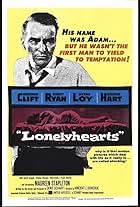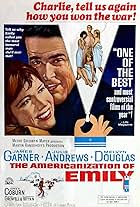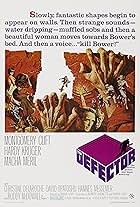VALUTAZIONE IMDb
6,3/10
4471
LA TUA VALUTAZIONE
Uno studente si innamora di una bella del sud, ma la loro relazione è complicata dal passato travagliato della ragazza.Uno studente si innamora di una bella del sud, ma la loro relazione è complicata dal passato travagliato della ragazza.Uno studente si innamora di una bella del sud, ma la loro relazione è complicata dal passato travagliato della ragazza.
- Candidato a 4 Oscar
- 1 vittoria e 8 candidature totali
Fred Aldrich
- Townsman
- (non citato nei titoli originali)
Ruth Attaway
- Parthenia
- (non citato nei titoli originali)
John Barton
- Townsman
- (non citato nei titoli originali)
Oliver Blake
- Jake - Bartender
- (non citato nei titoli originali)
Nesdon Booth
- Spectator
- (non citato nei titoli originali)
Trama
Lo sapevi?
- QuizThe scenes which Montgomery Clift shot for this movie just before his accident represent the only color footage available of him before he was disfigured. All of his previous movies had been shot in black-and-white.
- BlooperAfter Abraham Lincoln's 1860 election, the crowd sings "The Battle Hymn of the Republic". However, Julia Ward Howe wrote the poem on which the song was based for the Atlantic Monthly in 1861.
- Citazioni
Susanna Drake: That 4th of July race... what happens when you win?
John Wickliff Shawnessy: Well, according to a friend of mine, if I win, a beautiful girl will place a garland of oak leaves on my sun-colored locks.
Susanna Drake: I'd like to be that girl.
John Wickliff Shawnessy: Maybe it can be arranged?
Susanna Drake: Oh, it can be arranged, all right. *I'll* arrange it.
- Versioni alternativeThe longer Roadshow version was released on VHS by Warner, where it was labeled as Reconstructed Original Version. It has also been shown on Turner Classic Movies cable channel. This version contains nearly 15 minutes of additional material not found on the General Release Version.
- ConnessioniEdited from Via col vento (1939)
- Colonne sonoreRaintree County
Music by Johnny Green (uncredited)
Lyrics by Paul Francis Webster
Sung by Nat 'King' Cole
Recensione in evidenza
"Raintree County" is one of those movies like "Ishtar" or "Waterworld;" troubled productions remembered as much -- if not more so -- for what went on behind the scenes as in the finished picture. Patricia Bosworth's definitive biography "Montgomery Clift" (1978) is the source of the facts that follow.
While "Raintree County" was in rehearsals, Montgomery Clift's drinking was out of hand, and threatened to hamper production. Elizabeth Taylor had no real influence on him, despite being his dearest friend and soulmate. Many in the cast and crew expressed their concerns to MGM higher-ups. This led to a series of meetings between Clift and MGM Production Chief Dore Schary. "Raintree" had a $5 million budget, the highest of any American film up to that time, so it was up to Schary to solve problems on the set or behind the scenes before they happened.
Schary left the meetings believing Clift was sincere in his desire to straighten up and behave himself. But he was not convinced that Monty would be able to do it. His demons were too powerful; every picture he made was held hostage to Clift's self-destructiveness. Schary decided to take out a $500,000 insurance policy on "Raintree County" just in case there was a halt in production for whatever reason.
Schary had never done this before, but his "funny premonition" tragically came to pass.
On May 12, 1956, half of "Raintree County" had been filmed. Elizabeth and other of Monty's friends had prevailed upon him to stay sober during shooting, and he was trying to live up to his side of the bargain. At a party at Elizabeth's and husband Michael Wilding's that night, Monty was sober and quiet. He had one glass of wine, and made his excuses and left. He was uncertain about driving down the steep hill to Sunset Blvd., and asked his close friend, Kevin McCarthy ("Invasion of the Body Snatchers") to lead him to the road.
McCarthy described many times in later years seeing Monty's headlights move wildly from one side of the road to the other in his rearview mirror. Then he watched in horror as Monty's car slammed into a telephone pole.
Montgomery Clift's impossibly beautiful profile and the planes of a face the camera adored were destroyed. He was crumpled on the floor of the car, his face and jaws crushed. Elizabeth Taylor resisted all attempts to keep her from going to his side. When she got to him, she straightened him up and pulled his two front teeth out of his throat before he strangled on them.
Recovery was long, slow; unbearably painful. Monty had friends sneak liquor into the hospital. Three weeks after rebuilding his jaws, Monty's doctors realized they had done the job incorrectly. They re-broke his jaws and wired them again.
Production was shut down for weeks. With over $2 million already invested in it, MGM was not about to abandon "Raintree," nor replace its star. Resumption of the project was primarily a question of money for the studio, but to Monty and those who loved him it was a question of pride.
Weeks after the accident, Monty was allowed to see himself in a mirror for the first time. He was not elated with the results, but relieved to see he looked enough like himself that he could continue acting in front of cameras. Greater than his pain had been the fear that his career was over.
Montgomery Clift returned to work on "Raintree County" knowing that the picture was no better than when he left. He returned knowing that audiences would come to see it to play a ghoulish game: they would try to spot him "before" and "after." He returned to the production numbed and dulled by painkillers and alcohol.
Despite his horrific ordeal, despite the liquor and the pills that eased his pain and enabled him to complete the picture, I still believe Montgomery Clift's performance of Johnny Shawnessy to be one of his best.
Clift had an unusual voice and unorthodox phrasing. On screen he was intuitive and sensitive, his portrayals always highly intelligent. However much he rehearsed (and he was notorious for doing things to death) Clift's readings always seemed quite natural. The accident changed none of these things. And equally fine performances were to come, in "Lonelyhearts" (1958), "The Misfits" and "Wild River" (both 1960); and "Judgment at Nuremburg" (1961).
Montgomery Clift died 40 years ago this week, on July 22, 1966. He was 45 years old. But part of him had died ten years earlier on a twisting road in the Hollywood hills. The accident that nearly killed him left him prey to his weaknesses but also to the enormous strength and passion that informs his later performances. "Raintree County" divided Monty Clift's life into "before" and "after."
While "Raintree County" was in rehearsals, Montgomery Clift's drinking was out of hand, and threatened to hamper production. Elizabeth Taylor had no real influence on him, despite being his dearest friend and soulmate. Many in the cast and crew expressed their concerns to MGM higher-ups. This led to a series of meetings between Clift and MGM Production Chief Dore Schary. "Raintree" had a $5 million budget, the highest of any American film up to that time, so it was up to Schary to solve problems on the set or behind the scenes before they happened.
Schary left the meetings believing Clift was sincere in his desire to straighten up and behave himself. But he was not convinced that Monty would be able to do it. His demons were too powerful; every picture he made was held hostage to Clift's self-destructiveness. Schary decided to take out a $500,000 insurance policy on "Raintree County" just in case there was a halt in production for whatever reason.
Schary had never done this before, but his "funny premonition" tragically came to pass.
On May 12, 1956, half of "Raintree County" had been filmed. Elizabeth and other of Monty's friends had prevailed upon him to stay sober during shooting, and he was trying to live up to his side of the bargain. At a party at Elizabeth's and husband Michael Wilding's that night, Monty was sober and quiet. He had one glass of wine, and made his excuses and left. He was uncertain about driving down the steep hill to Sunset Blvd., and asked his close friend, Kevin McCarthy ("Invasion of the Body Snatchers") to lead him to the road.
McCarthy described many times in later years seeing Monty's headlights move wildly from one side of the road to the other in his rearview mirror. Then he watched in horror as Monty's car slammed into a telephone pole.
Montgomery Clift's impossibly beautiful profile and the planes of a face the camera adored were destroyed. He was crumpled on the floor of the car, his face and jaws crushed. Elizabeth Taylor resisted all attempts to keep her from going to his side. When she got to him, she straightened him up and pulled his two front teeth out of his throat before he strangled on them.
Recovery was long, slow; unbearably painful. Monty had friends sneak liquor into the hospital. Three weeks after rebuilding his jaws, Monty's doctors realized they had done the job incorrectly. They re-broke his jaws and wired them again.
Production was shut down for weeks. With over $2 million already invested in it, MGM was not about to abandon "Raintree," nor replace its star. Resumption of the project was primarily a question of money for the studio, but to Monty and those who loved him it was a question of pride.
Weeks after the accident, Monty was allowed to see himself in a mirror for the first time. He was not elated with the results, but relieved to see he looked enough like himself that he could continue acting in front of cameras. Greater than his pain had been the fear that his career was over.
Montgomery Clift returned to work on "Raintree County" knowing that the picture was no better than when he left. He returned knowing that audiences would come to see it to play a ghoulish game: they would try to spot him "before" and "after." He returned to the production numbed and dulled by painkillers and alcohol.
Despite his horrific ordeal, despite the liquor and the pills that eased his pain and enabled him to complete the picture, I still believe Montgomery Clift's performance of Johnny Shawnessy to be one of his best.
Clift had an unusual voice and unorthodox phrasing. On screen he was intuitive and sensitive, his portrayals always highly intelligent. However much he rehearsed (and he was notorious for doing things to death) Clift's readings always seemed quite natural. The accident changed none of these things. And equally fine performances were to come, in "Lonelyhearts" (1958), "The Misfits" and "Wild River" (both 1960); and "Judgment at Nuremburg" (1961).
Montgomery Clift died 40 years ago this week, on July 22, 1966. He was 45 years old. But part of him had died ten years earlier on a twisting road in the Hollywood hills. The accident that nearly killed him left him prey to his weaknesses but also to the enormous strength and passion that informs his later performances. "Raintree County" divided Monty Clift's life into "before" and "after."
- ecjones1951
- 19 lug 2006
- Permalink
I più visti
Accedi per valutare e creare un elenco di titoli salvati per ottenere consigli personalizzati
Dettagli
Botteghino
- Budget
- 5.000.000 USD (previsto)
- Tempo di esecuzione3 ore 2 minuti
- Colore
Contribuisci a questa pagina
Suggerisci una modifica o aggiungi i contenuti mancanti

Divario superiore
What is the Brazilian Portuguese language plot outline for L'albero della vita (1957)?
Rispondi
